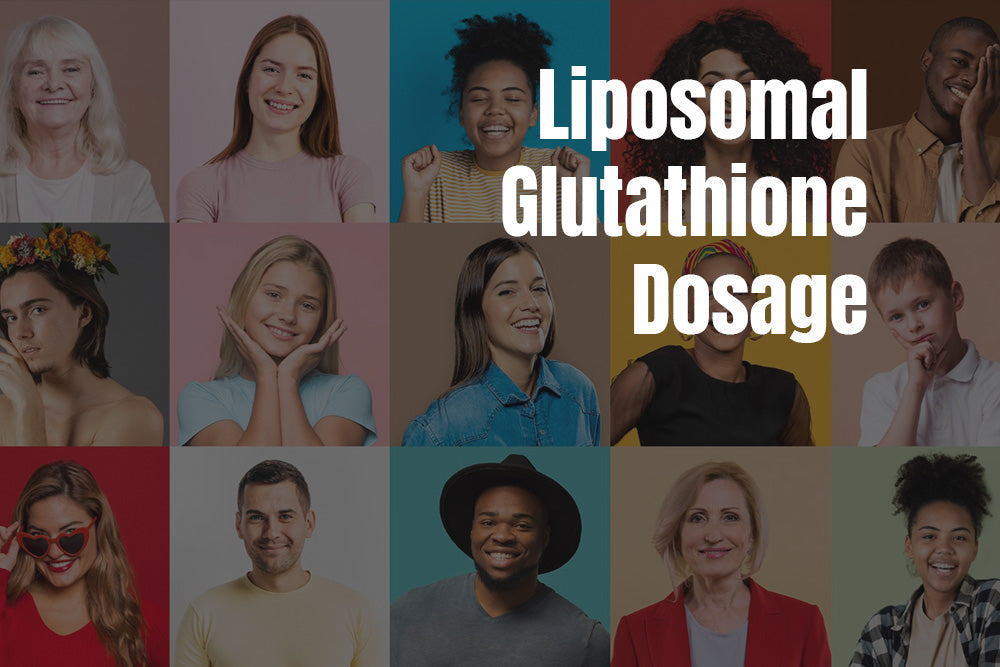

Understanding the Right Liposomal Glutathione Dosage for Every Individual
Table of Contents
In recent years, the health and wellness industry has witnessed a surge in interest surrounding liposomal glutathione supplementation. Glutathione, a powerful antioxidant naturally produced by the body, plays a crucial role in detoxification, immune support, and overall well-being. The emergence of liposomal technology has enhanced the bioavailability of glutathione, making it a popular choice among individuals seeking to optimize their health.
However, determining the right liposomal glutathione dosage for each individual can be a complex task. In this comprehensive guide, we will delve into the scientific research behind liposomal glutathione supplementation and explore the factors that influence the ideal dosage tailored to different individuals' needs.
Understanding Liposomal Glutathione: A Brief Overview
Liposomal glutathione refers to a specialized form of glutathione where the molecule is encapsulated within liposomes, tiny lipid-based vesicles that protect the nutrient during digestion and enhance its absorption in the body. This delivery method ensures that a higher percentage of glutathione reaches the bloodstream intact, maximizing its therapeutic effects.
Scientific Research on Liposomal Glutathione Dosage
Scientific studies have demonstrated the efficacy of liposomal glutathione supplementation. A study published in the "Journal of Clinical and Experimental Hepatology" (2018) explored the impact of liposomal glutathione supplementation on patients with non-alcoholic fatty liver disease (NAFLD). The results indicated a significant reduction in liver enzymes and oxidative stress markers, highlighting the potential of liposomal glutathione in managing liver-related conditions.
Factors Influencing Liposomal Glutathione Dosage
Body Weight and Composition
Individuals with higher body weight may require a higher dosage to achieve optimal glutathione levels. Additionally, body composition, including muscle mass and fat percentage, can influence the distribution and utilization of glutathione in the body.
Health Conditions
Certain health conditions, such as chronic diseases, autoimmune disorders, and oxidative stress-related conditions, may necessitate a tailored approach to liposomal glutathione supplementation. Consulting a healthcare professional is crucial for individuals managing specific health issues.
Age and Gender
Age-related factors and gender-specific variations in metabolism can impact the body's glutathione levels. Older adults and individuals of different genders may require adjusted dosages to address age-related declines in glutathione production.
The recommended dosage of liposomal glutathione varies depending on the individual's health needs and the specific product they are using. However, a general guideline is to take 500-2,000 mg per day. It is important to start with a low dose and increase gradually over time to avoid any side effects.

Right Liposomal Glutathione Dosage for Every Individual
According to a 2018 study published in the journal Oxidative Medicine and Cellular Longevity, the recommended daily dose of liposomal glutathione ranges from 250 to 1,000 mg for most people. However, for individuals with certain health conditions, such as cancer or Parkinson's disease, higher doses may be necessary.
Here are some specific guidelines for liposomal glutathione dosage based on different health conditions:
- Cancer: 1,000 to 2,000 mg per day
- Parkinson's disease: 600 to 1,200 mg per day
- Liver disease: 500 to 1,000 mg per day
- Oxidative stress: 500 to 1,000 mg per day
It is important to note that these are just general guidelines and the optimal dosage for each individual may vary. It is always best to consult with a healthcare professional before starting any new supplement regimen, especially if you have any underlying health conditions.
Optimizing Liposomal Glutathione Dosage: Practical Considerations
Start Low, Go Slow
It is advisable to start with a lower dosage of liposomal glutathione and gradually increase it while monitoring the body's response. This approach allows individuals to assess their tolerance and determine the optimal dosage without overwhelming the body.
Consultation with Healthcare Professionals
Individuals with underlying health conditions, pregnant or breastfeeding women, and those taking medications should consult healthcare professionals before initiating liposomal glutathione supplementation. Healthcare providers can offer personalized recommendations based on individual health profiles.
Regular Monitoring and Adjustments
Regular health check-ups and monitoring of glutathione levels can guide individuals in adjusting their liposomal glutathione dosage according to changing health needs and overall well-being.

Dietary Sources of Glutathione
Dietary sources of glutathione include:
- Fruits: Avocado, watermelon, cantaloupe, strawberries, peaches, apples, pears, bananas.
- Cruciferous vegetables: Broccoli, Brussels sprouts, cauliflower, cabbage, kale, collard greens.
- Other vegetables: Asparagus, spinach, tomatoes, squash, potatoes, carrots.
- Protein sources: Meat, poultry, fish, eggs, dairy products.
- Nuts and seeds: Almonds, Brazil nuts, walnuts, cashews, sunflower seeds, pumpkin seeds.
- Other foods: Garlic, onions, shallots, turmeric, milk thistle.
It is important to note that the body does not absorb glutathione very well from food. However, eating foods that are rich in glutathione precursors, such as the amino acids cysteine and methionine, can help to boost glutathione levels.
Why Liposomal Glutathione Supplementation is Important?
Glutathione is a tripeptide that is produced naturally in the body and is essential for many cellular functions, including detoxification, antioxidant defense, and immune function. Liposomal glutathione is a form of glutathione that is enclosed in liposomes, which are tiny fat-soluble spheres. This allows the glutathione to be better absorbed by the body, as it protects it from stomach acid and digestive enzymes.
Liposomal glutathione supplementation is important for a number of reasons, including:
To support detoxification
Glutathione is involved in many detoxification pathways in the body. It helps to neutralize free radicals, which are unstable molecules that can damage cells. Glutathione also helps to detoxify the liver, which is the main organ of detoxification in the body.
To support immune function
Glutathione is essential for the proper functioning of the immune system. It helps to produce and activate immune cells, and it also helps to protect cells from damage by infectious agents.
Let's Sum Up
Liposomal glutathione supplementation offers a promising avenue for individuals looking to enhance their antioxidant defenses, support liver health, and boost overall vitality. However, understanding the right liposomal glutathione dosage requires a nuanced approach that considers individual factors, scientific research, and expert guidance.
By staying informed, consulting healthcare professionals, and being mindful of personal health needs, individuals can harness the potential benefits of liposomal glutathione supplementation effectively and responsibly.
















